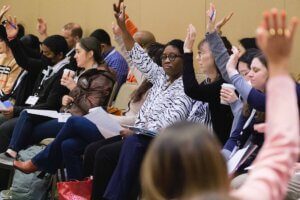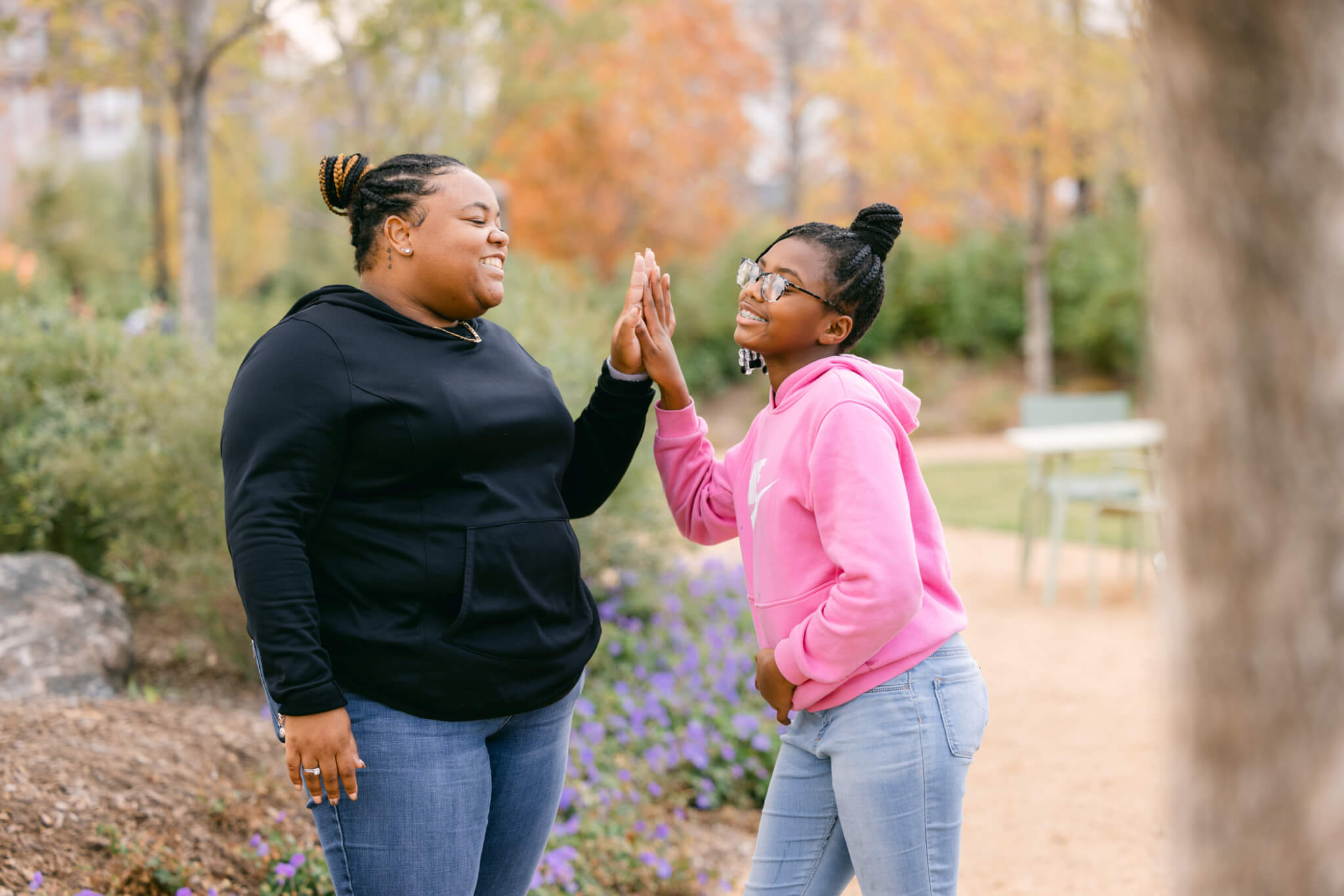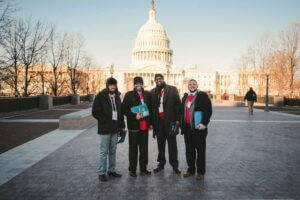Webs of Support: The Impact of Building Ecosystems for Youth
Mentors can play an instrumental part in preparing young people for college and career. Spark’s Career Exploration and Self-Discovery Program leads students and mentors through hands-on activities designed to increase students’ social and emotional skills, build social capital, and increase school performance and engagement.
 According to Dr. Janis Kupersmidt in Youth Today, “A growing body of research shows that networks of relationships are critical for college and career success.” Though I am now the Director of Evaluation for Spark, I began my career as an evolutionary biologist, and I look for ways to connect biology to my current work. Dr. Kupersmidt’s words remind me of ecology and how each strand of an ecological web is critical for the survival of all. Researchers in education, such as Elizabeth Raposa, Sarah Schwartz, and those working with the America’s Promise Alliance have recognized this as well, and in particular, the importance of webs of support for youth. Just like an ecosystem, strong connections between youth and adults in their communities will build up not only individuals, but the system as a whole.
According to Dr. Janis Kupersmidt in Youth Today, “A growing body of research shows that networks of relationships are critical for college and career success.” Though I am now the Director of Evaluation for Spark, I began my career as an evolutionary biologist, and I look for ways to connect biology to my current work. Dr. Kupersmidt’s words remind me of ecology and how each strand of an ecological web is critical for the survival of all. Researchers in education, such as Elizabeth Raposa, Sarah Schwartz, and those working with the America’s Promise Alliance have recognized this as well, and in particular, the importance of webs of support for youth. Just like an ecosystem, strong connections between youth and adults in their communities will build up not only individuals, but the system as a whole.
We’ve seen strong evidence of this in our students. Take Andrew, a student who started at Spark as an academically talented but shy 8th grader. Andrew was paired with Marco, an architect at Abramson Teiger Architects. Through Spark’s Workplace-Based Mentoring, Marco worked with Andrew on building the skills and confidence to navigate life outside of the classroom and, in the process, built a relationship that continued after the official mentorship ended. Andrew gained professional experience interning in Marco’s office and earned a glowing recommendation from Marco when it came time to apply to college. Andrew was accepted into Brown University, where he will be the first in his family to graduate from college. His success was best expressed by his father:
“Parents can only go so far in helping our kids’ dreams come true and that is why we are SO THANKFUL to the Spark team, Marco and all the other great mentors and teachers that Andrew has had throughout these years.”
Andrew’s ecosystem of support helped him build his individual skills and social capital. If we’re thinking in terms of ecosystems, social capital is a key resource for accessing the knowledge, people and structures leveraged for success. According to the “Relationships Come First” report, mentoring is a highly successful way of building social capital, especially for career and workforce development. America’s Promise Alliance’s “Framework for Accelerating Progress for Children and Youth in America” calls for strong relationships, webs of support and engaged communities to continue improving graduation rates and help young people overcome challenges. Mentoring organizations are keenly positioned to lead this effort.
Back in Los Angeles, Andrew continues to leverage his web of support today. He is still in touch with Marco, and is interning at the Spark offices in Los Angeles. His story illustrates the power of bringing diverse communities together. Andrew, his parents, and his mentor Marco all benefited from their connections in this ecosystem, and even we at Spark continue to benefit from Andrew’s experience and perspective.
###
Heather King began her career as a research scientist at the University of Chicago where her work and discoveries made international news. She was also a fellow in the National Science Foundation’s Integrative Graduate Education and Research Traineeship (IGERT), which trains graduate-level scientists to integrate a wide range of disciplines into their research. Heather has been passionate about improving education since mentoring middle school girls as a graduate student. After completing her doctorate in evolutionary biology, she then transitioned to Outlier Research & Evaluation at UChicago. At Outlier, Heather studied the implementation of STEM high schools, the landscape of K12 computer science education in the United States, and also led an evaluation of Code.org’s national offerings. She was also an Entrepreneurial Lead in the National Science Foundation Innovation Corps for Learning program (I-Corps-L), a seven-week entrepreneurial bootcamp for education researchers.


